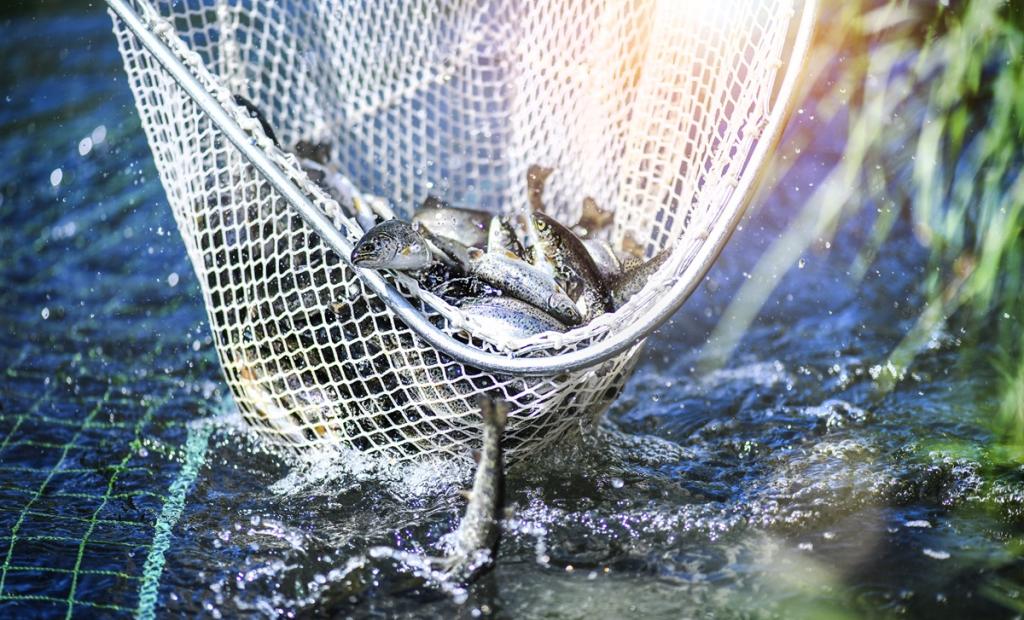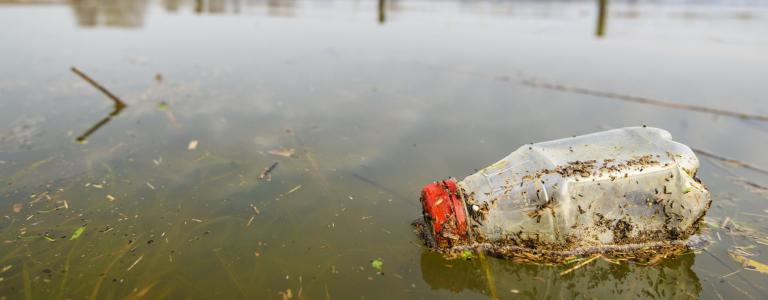INC-4 Is an Opportunity to Address Fresh Water Pollution – This is how
Fresh water is vitally important to everyone. It’s the water we drink and use to hydrate our agricultural lands and livestock. It’s the water in our communities' ponds, lakes, and wetlands.
Every year, more plastic is being released into these environments, including microplastics, even in the most remote freshwater environments, and the North American Great Lakes, where 90% of water samples had microplastics levels surpassing safe levels for aquatic wildlife. That’s why current research at IISD Experimental Lakes Area is tackling the problem head on.
“Microplastics pollution is impacting even the most remote lakes in the world. We need better policies to protect freshwater ecosystems.”
The World Coming Together to Tackle Plastics Pollution
The world has a problem with plastics, and countries are collaborating to find solutions. Negotiators are meeting in Ottawa April 23–29, 2024, for the fourth meeting of the International Negotiating Committee (INC-4) to develop an international legally binding instrument on plastic pollution.
A revised draft text for the agreement has already been made available, and from a freshwater perspective, there are reasons for hope and some opportunities for improvement.
We Need to Focus More on Plastics Pollution in Freshwater
The most recent version of the agreement is holistic in scope, accounting for the entire life cycle of plastics. This is encouraging because minimizing plastic production and use is one of the most effective ways to prevent plastic pollution from damaging the environment. The text also takes careful consideration of chemical additives to plastics, acknowledging that they are known to have their own environmental harms.
Even so, we need to go further; freshwater pollution needs to be addressed more explicitly and comprehensively. After all, freshwater bodies have seen an exponential increase in the presence of plastic waste in the past few decades, and act as a source of plastics into marine environments.
Freshwater environments are explicitly mentioned in two sections of the preliminary text going into INC-4, which has a central focus on marine environments—understandable, considering the title of the negotiation itself includes references to marine environments. However, this agreement represents an opportunity to protect all natural environments from plastic pollution that the international community will not want to miss.
There are currently several options for what different parts of the text could look like. In some of these options, broader language such as “aquatic environments” or “water” is used in place of “marine environments” or “ocean” to better represent how various types of environments might all be affected by the same pollution sources. This is a positive step forward that opens opportunities for additional revisions to explicitly address freshwater concerns within the treaty.

Bringing Fresh Water Into INC-4: A few examples
Looking at the revised draft through the lens of freshwater protection, there are areas where it would make sense to include specific references to freshwater environments, but they are overlooked.
In nearly every section of the draft agreement, the word “marine” is mentioned, appearing 51 times. Meanwhile, specific references to fresh water are made only seven times.
There are many opportunities within the full text of the document released ahead of INC-4 to bolster and explicitly reference freshwater protection in the context of plastics pollution.
Below, we will highlight a few specific options; however, if you are interested in reading the plastic treaty document shared before INC-4 in full, click here.
- Plastic waste being generated from fishing gear is the specific focus of Section 9b, without considering the hundreds of inland freshwater fisheries worldwide. As the word “marine” is in the agreement title, inclusion of freshwater fisheries would need to be made explicitly to encompass these systems.
- In all clauses that specifically impact freshwater environments, there should be an inclusion of the term “fresh water.” Alternatively, we recommend using the term “aquatic environments” to include both marine and freshwater environments.
- An example of bringing freshwater concerns seamlessly into the INC-4 document can be found in Section 8, Option 4.4 on the Emissions and Releases of Plastics Throughout Its Lifecycle. In this paragraph, which pertains to an aspect of plastic pollution that may specifically threaten freshwater ecosystems, the text reads:
“The governing body,* at its first session, shall adopt guidelines … on preventing and controlling emissions and releases … and remove plastic waste, including microplastics from freshwater bodies, the marine environment and ecosystems.”
Here, freshwater bodies are specifically referenced alongside marine environments, acknowledging their distinct, important role in managing the impacts of plastic pollution.
Overall, the negotiation of such a treaty and the current draft text provide reason for optimism. The inclusion of detailed clauses for preventing the initial release of plastics into the environment, considerations of problematic chemical additives, and plastic emissions throughout the life cycle of plastic products are potentially impactful elements.
INC-4 is a critical international process, and the much-anticipated binding global agreement on plastic pollution could and should have major implications for freshwater quality around the globe.
The global living treaty developed by the end of INC-5 is important for the protection of all natural environments. We eagerly await a final draft at the end of next week that incorporates freshwater considerations as a means for a stronger and more effective agreement to ensure healthier lakes, fish, and drinking water for all.
You might also be interested in
Northwest Ontario Side Story: IISD Experimental Lakes Area Annual Report 2022-2023
This year's annual report is a celebration of all things creative at the world's freshwater laboratory, from the science to music, photography and theatre.
Powering the Clean Energy Transition: Net-Zero electricity in Canada
This brief explains how a shift to clean power generation can offer affordable, reliable electricity, benefiting households and businesses alike.
What to Expect at Plastics INC-5
Q and A with Tallash Kantai of Earth Negotiations Bulletin on INC-5.
The Chemical Analysis of Fresh Water (Third Edition)
This publication describes the protocols used in the IISD Experimental Lakes Area Analytical Service Laboratory for the measurement of chemical constituents in freshwater samples.
